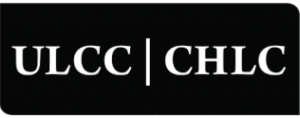Charitable crowdfunding is wonderful. It allows ordinary individuals to raise funds for themselves, others in need or for charities quickly and at a minimal cost. It provides donors who are looking to help others or respond to a disaster with an easy way to do so. It encourages altruism, generosity and community.
Charitable crowdfunding is terrible. It allows anyone to ask for money for themselves, others who may not even want the assistance, and for purported charities that may not even know about the appeal, based on mostly unverifiable, sob stories. It provides a way for supporters of problematic causes to fund their problematic efforts. And most campaigns that seek to address a legitimate need fall far short of the amount required, leaving the organizers and beneficiaries worse off than before. It provides a new avenue for waste, fraud and division.

“The spectacular tale of a crowdfunder gone wrong: Lessons for Canada from Australia,” by Myles McGregor-Lowdnes, shows how wonderful-terrible these crowdfunders can be — and what we should do about it. Photo is courtesy of Jo-Anne McArthur and Unsplash.
Competing narratives, limited information
Which of these narratives is true, and to what extent? Government regulators watching the explosive growth of charitable crowdfunding would like to know, but so far there are very little data available. Partial figures indicate that charitable crowdfunding – using an Internet platform to raise funds for needy individuals or organizations without any tangible return to donors – has grown to billions of dollars annually through thousands of websites reaching citizens in dozens of countries. While still relatively small compared to the hundreds of billions of dollars that charities raise annually, the current growth strongly indicates that this way of fundraising is now well established and will likely become a significant method for raising funds. Already, some campaigns have raised tens of millions of dollars, including the Australian wildfires campaign discussed by Myles McGregor-Lowdnes on this website, the Canadian campaign in the wake of the Humboldt hockey team tragedy, and most recently the CDC Foundation’s Crush COVID campaign in the United States.
With limited data about the scale of charitable crowdfunding have come numerous stories of negative consequences. These include the fact that many, perhaps most, campaigns fall short of their goals, leaving organizers and beneficiaries frustrated and disappointed, as reported in The Atlantic. As the same story details, even for campaigns that are wildly successful, there may be questions about whether the funds raised effectively address the needs that the organizers sought to remedy.
And there is a darker side to charitable crowdfunding. There are numerous stories of fraudulent campaigns where the funds raised were not used for the asserted need or where the need itself was manufactured, with perhaps the largest being a $400,000 campaign based on an allegedly made-up story about a homeless veteran. And it came to light that participants in the January 6, 2021, attack on the U.S. Capital Building used crowdfunding platforms to raise funds to travel to Washington, DC.

“Will Provinces & Territories Increase Trust in Crowdfunding?” by Peter Broder, looks at a new Canadian regulation that could solve crowdfunding problems.
How should governments respond?
Given the controversies and shortage of data, government regulators have struggled with how to respond to this new fundraising technique, especially given that existing laws governing charitable solicitation may not apply. In Canada and the US, uniform law bodies have completed or are drafting model laws to address some aspects of charitable crowdfunding. However, to date only one Canadian province has adopted such a law. And in the US, the California legislature has repeatedly considered bills specifically addressing regulation of charitable crowdfunding, but failed to enact any.
In a recent article that will be published in the Indiana Law Journal, I address these issues in detail. My conclusion is that we need requirements that increase the flow of information to beneficiaries and, to a limited extent, to regulators. Platforms should be required to notify purported beneficiaries of campaigns launched in their name, both to help ensure the funds raised reach them and to allow them the opportunity to opt out. Platforms should also be required to notify regulators of campaigns that exceed a certain threshold, both to aid regulators in responding to any reports of possible fraud and to give regulators better data on which to base future decisions regarding regulation. These limited requirements would help address the information deficit for this new fundraising method, while at the same time not unduly burdening efforts to encourage generosity and address legitimate needs. This, in turn, will help to ensure that crowdfunding is a wonderful innovation, not a terrible one.
Lloyd Hitoshi Mayer is a Professor at Notre Dame Law School, in the US. He’s on LinkedIn and Twitter. Photo is courtesy of Elyssa Fahndrich and Unsplash.
Sign up to PANL Perspectives' free, monthly newsletter
Wednesday, April 7, 2021 in Online Fundraising, Public Policy & Advocacy, Story for homepage
Share: Twitter, Facebook
 By
By 


